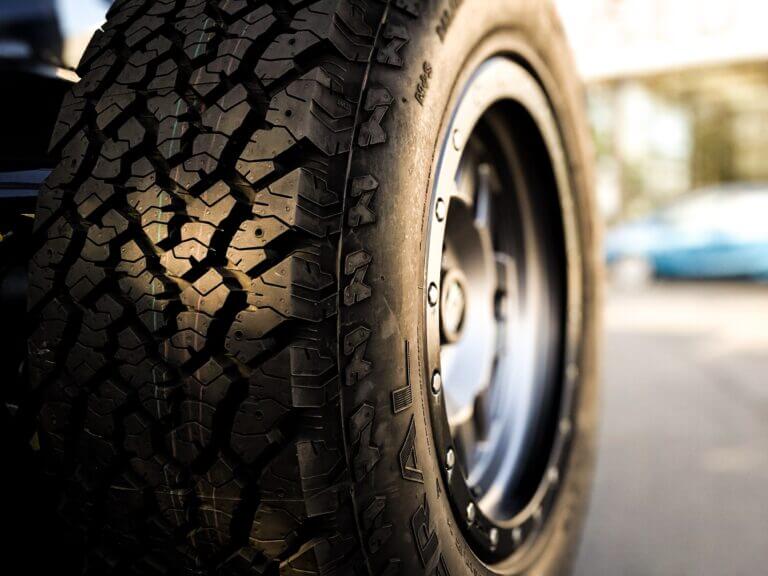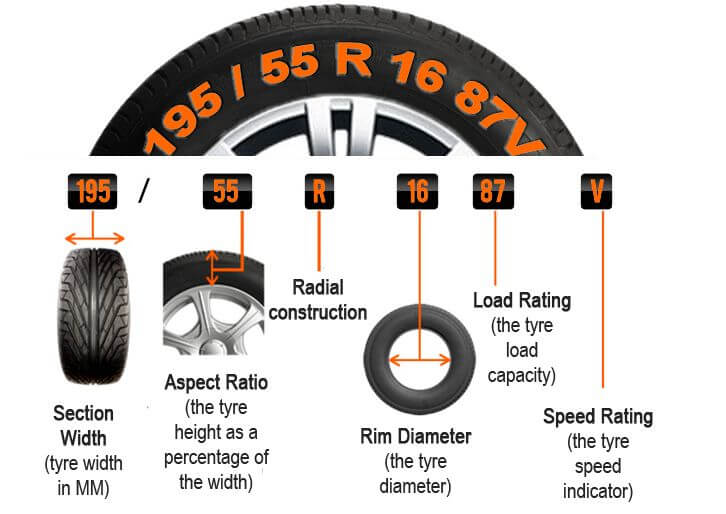
Things to Consider Before Purchasing New Tires
Updated May 2023
Buying new tires can be a stressful adventure if you’re not sure what you’re looking for. Take Off Tire’s goal is to make this process as easy as possible for you. This article will go over some of the main points to consider before purchasing a new set of tires. Take Off Tire’s current tire offerings are available here: Tire Seller or you can give us a call at: 402-413-6646. We will ask all the appropriate questions to get you set up with the best possible tire for your desired applications.
What Type of Tire Makes Sense For You?
All-Season Tires: A lot of vehicles are fitted with All-Season tires when they leave the factory because they provide a quality year round performance in all weather types along with the standard benefits that good tires should provide such as good tread life, a quiet ride and general safety features to make you feel comfortable on the road. All-Season tires feature tread patterns that are designed to provide a strong and reliable grip on dry, wet and snowy roads. If you live in a climate that is going to see a variety of weather conditions, All-Season tires are typically a safe bet. However, while these tires are built to handle all seasons, they do sacrifice some of the max benefits that true summer and winter tires provide.
Winter Tires: Winter tires are designed to help provide enhanced traction once the temperature drops below 45 degrees Fahrenheit. This type of tire has a deeper tread depth that improves traction on snow and ice. The deeper tread depths also lessen the amount of snow buildup that tires can accumulate. Winter tires have unique tread patterns that help prevent hydroplaning and can enhance breaking performance in snowy and icy conditions. If you live in a colder climate or in a place that sees harsh winter conditions, buying winter tires would make sense for you.
Summer/Performance Tires: Summer tires, or Performance tires, are designed to provide excellent traction and precise handling in both dry and wet conditions. The tread patterns of summer tires feature a shallower and straighter groove type than you would see on an All-Season or Winter tire. These patterns provide more stability when cornering, braking and accelerating. While Summer tires provide excellent traction in dry and wet conditions, they do not offer any traction in the winter when you are dealing with snowy and icy conditions. If you live in a climate that is warm all year round and sees little-to-no snow, buying Summer or Performance tires might be the right choice for you.
All-Terrain Tires: All-Terrain tires can be looked at as a hybrid of an All-Season tire and an Off-Road tire. All-Terrain tires are designed to perform well both on and off road and are incredibly versatile. This type of tire features a more aggressive tread type than an All-Season tire that provides better performance in off road conditions and also better traction in snowy conditions. This tread gives the tire good year round performance. All-Terrain tires are best suited for trucks, SUVs and 4-wheel drive cars. The negative features of All-Terrain tires are that they are noisier on the highway/interstate, they rank lower in terms of fuel efficiency and have a shorter tread life than other types of tires.
How to Find your Tire Size and Weighing Additional Options
When getting ready to replace your tires, it’s generally a good idea to get an equivalent to the tires that your vehicle came with or what is recommended by your car manufacturer. Your car was engineered to work best on the type and size of tires that came with it so unless you’ve done extensive research, this route will be your best bet in terms of performance and safety.
To find your vehicle’s correct tire size you’ll need to look at your current set of tires. On the sidewall you will find several sets of numbers and letters that determine the tire’s size, speed rating and information about things like tread-wear ratings. Below is an example of the information that you are looking for:

Another place to find your “Original Equipment Manufacturer” or OEM tire size is by finding the vehicle placard. The vehicle placard can be found inside the driver door of the vehicle. If you own a used vehicle, there is a chance that the tire size has changed over the years. There is also a chance that your wheel size has changed over the years. Looking at your current tire size is always a good place to start and then using the vehicle placard to verify the size is the best practice to get your correct tire size.
How Many Miles will the Tires I'm Considering Last?
In general, a new set of tires should last 40,000 – 70,000 miles but there are many factors that come into play such as: the tire type, treadwear rating, the road conditions you drive on daily and the driving habits that you have. If you are driving on gravel and dirt roads on a regular basis, you can expect this to cause more wear on your tires than driving mainly on pavement. If you have a habit of accelerating quickly and coming to fast stops your tires will wear faster than those with habits of slow stops and gentle acceleration.
New tires should have anywhere from 8 to 15 millimeters of tread on them depending on the type. A tire with tread below 2 millimeters lacks grip and is considered dangerous to drive.
How Much do Quality Tires Cost?
If you drive a smaller vehicle like a sedan, expect to pay $110-170 per tire for quality tires that come from a name brand manufacturer like Continental, General Tire or Falken. If you drive a larger vehicle like an SUV or truck, expect to pay $175-300 per tire. All-season and other basic style tires will be on the lower end of the price range while performance tires and All-Terrain type tires will be on the higher end. There are other variables to consider as well such as the tire size needed to fit on your wheel.
Another thing to keep in mind when budgeting for a purchase of tires are the additional service and installation fees that come with tires. At a minimum, your tires will need to be mounted and balanced. This fee ranges from shop to shop and will also vary depending on the size and style of tire.
Take Off Tire is the premium new and used tire seller in Lincoln, NE. To see our current new tire offerings, CLICK HERE. If you have any questions or need some advice on what to get for your next set of tires give us a call at: 402-413-6646.
